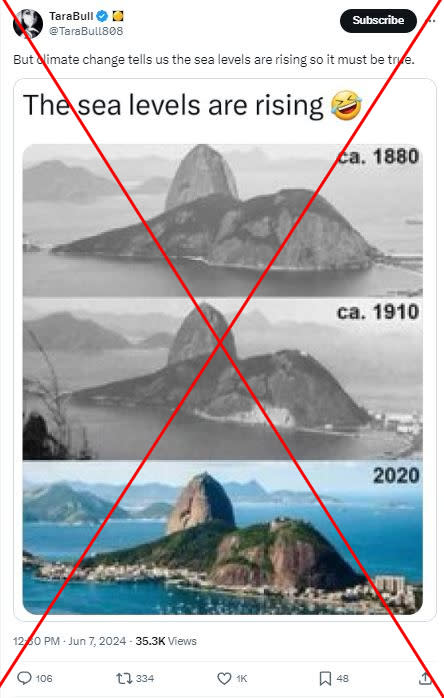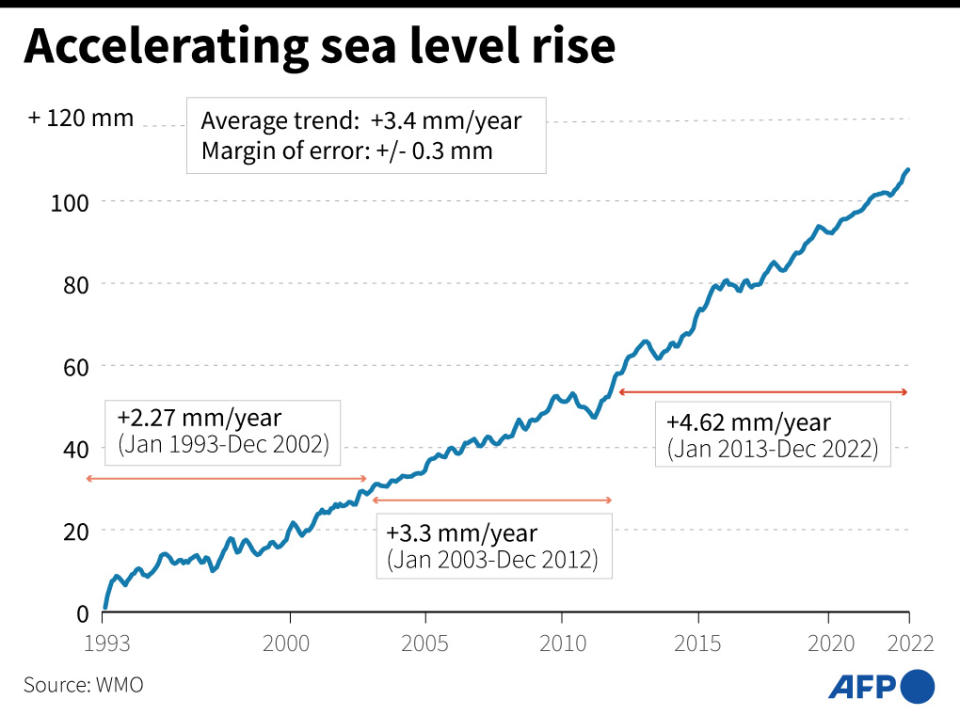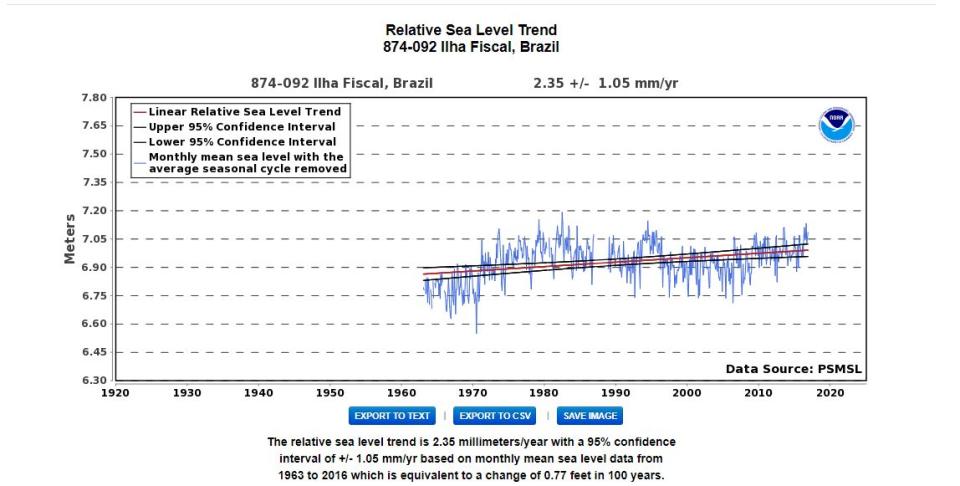Archive photos of Brazil mountain do not disprove sea level rise
Despite evidence of sea levels rising over the last century, skeptics are sharing archive photos of Sugarloaf Mountain in Brazil in an effort to disprove the impact of climate change on ecosystems. But regional and global data confirm the increase, with considerable evidence linking higher sea levels across the globe to human activity, scientists say.
"Climate change tells us the sea levels are rising so it must be true," a post shared on X on June 7, 2024 reads, sharing a series of photos of a mountain surrounded by water, and seemingly taken over a span of 140 years.

The same claim circulated in several languages, including German, on social media.
The photos show Sugarloaf Mountain (archived here) off the coast of Rio De Janeiro at the entrance of the Guanabara Bay, in southeastern Brazil, a reverse image search found.
AFP found identical matches for photos taken in the 1880s and circa 1910 (archived here and here), while a third photo from 2012 appears to match the angle and scenery used for the image labeled as from 2020 on social media (archived here).
But scientists told AFP that the images do not disprove the rise of sea levels.
"This is a very misleading post. The resolution of the image does not allow an accurate assessment of the claim," Jayantha Obeysekera, director of the Sea Level Solutions Center at Florida International University (archived here), told AFP on June 13.
Global trends
Alberto Garcia de Figueiredo Jr (archived here), professor in the department of geology at the Fluminense Federal University in Rio de Janeiro, told AFP on June 12 that "a sea level oscillation in a period of 150 years would be on the order of a few centimeters," not detectable at the distance in which the pictures were taken.
The UN Intergovernmental Panel on Climate Change (IPCC) said in a 2021 report (archived here) that the average rate of sea-level rise increased from 1.3 millimeters per year between 1901-1971 to 1.9 mm per year between 1971-2006.
Between 2006 and 2018, the rate shot up to 3.7 mm per year.

"Global mean sea level has risen faster since 1900 than over any preceding century in at least the last 3,000 years," the report says, adding that human-caused emissions are "extremely likely" the culprit.
Obeysekera previously told AFP that humans "are warming the planet at a rate over a short period compared to the natural phenomena that happened over geological time frames."
Local impacts
Local data spanning nearly 60 years also appear to confirm an increase in sea levels at Guanabara Bay in Brazil.
A tidal gauge station (archived here) near Sugarloaf indicates relative sea levels off the coast of Rio de Janeiro have risen by an average of 2.35 millimeters per year (archived here), which represents a rise of over 14 centimeters (5.5 inches) since measurements started in 1965.

But regional, relative sea levels are not accurate measurements, as they are influenced by too many variables, experts told AFP.
"The most accurate method is satellite altimetry, which has replaced the original data measured with tide gauges," Garcia de Figueiredo Jr noted (archived here).
Based on satellite "measurements it can be stated that the sea level has risen by about 20 centimeters (approximately 8 inches) in the last 150 years" around the world (archived here), he said.
Luiz Paulo de Freitas Assad (archived here), oceanologist and professor of meteorology at the State University of Rio de Janeiro, told AFP on June 10 that Rio's coastlines also show signs of "notable erosion" caused by the rise of sea levels over the years in addition to "the increase of frequency and intensity of ocean/atmosphere extreme events."
Regional coastal erosion in Brazil has been documented by scientists extensively (archived here and here).
AFP has debunked similarly false claims about other historical sites, including the Statue of Liberty and the Plymouth Rock.

 Yahoo News
Yahoo News 
